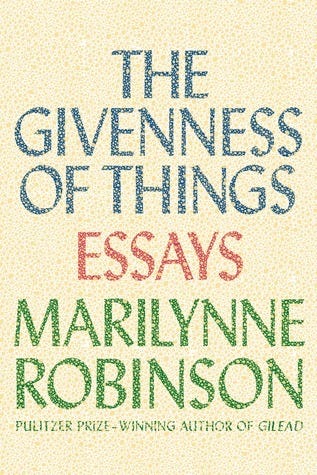Is Reformed Worship a Departure from Rome or Rome Re-made?
The Reformation had particular emphases. Among them, justification by faith played a central role. But what about worship? What role did worship play in Reforming the Church?
As we approach Reformation Sunday in the coming weeks, historical opponents of Protestantism quickly rush to dismantle that historical moment. They have offered a host of alternative scenarios to discredit that mighty work of God. They have blamed Luther’s personality and psychology, they have argued for the proliferation of denominations as a cause for chaos, they have argued against predestination, and further that the Reformers do not concern themselves with history, etc. But there is one element stressed often which I wish to address.
Liturgical Worship No Mas?
There is a myth that when the Reformers broke from Rome, they broke free from liturgical worship. True Protestant worship is spontaneous and unconstrained by liturgical forms. Who needs a bulletin? Let’s just follow the Spirit.” This is the general belief of most evangelicals in America– that breaking from Rome is breaking from liturgy. Of course, everyone has a liturgy; some are thought through, others are not. And because of this supposed idea of how a Reformed Church should be, many Protestants have ended up with entertainment-driven worship. But here is the irony of all of this: before the Reformation, the people would gather to be entertained by the Roman Church. Now, they were not entertained by skits and praise bands as many do today; rather, they were entertained by seeing the priest do his magic.
In those days, the priest would take the bread and wine, and through some mystical process, it would be turned into the substance of Christ’s body, though its form was not altered. But when the magic was done, the people did not take the bread and wine; only the priest took the bread and wine. The people just sat there and listened to the priest talk in a language they did not know. It was a form of passive entertainment. Do you know how the Reformers reacted to this liturgical trickery and this passive entertainment offered to the people? The Reformers said: “Enough of this!” Rich Lusk notes that “The Reformers rediscovered the biblical truth that the whole congregation is a priesthood called to offer up spiritual sacrifice before God.”
The Reformers insisted that the people, together with the minister, do the work of worship; that people, instead of sitting down passively and watching the trained musicians or the priest do his trick, were now going to become themselves living sacrifices unto God (Rom. 12:1). So, instead of only the trained musicians in the choir singing, the Reformers began to take the laity, the common people, and trained them to sing. Luther, of course, was a much better-trained musician than most of the Reformers, so he began to compose beautiful music. He began to train the congregation to sing robustly, not like monks, but like warriors. And Calvin, who was not musically gifted, hired a musician to put the psalms into music.
So, you see, what is happening is that the passive nature of the people in worship, where only the professionals sing–that is, in fact, still prevalent in our own day–has much more in common with Roman Catholicism than Protestantism. The Reformers wanted the congregation involved in the liturgy: singing, confessing, and every other part of worship. Therefore, the Reformers did not abandon the liturgy; they corrected the liturgy of Rome. Instead of only priests and trained singers involved in the church, while the people remained silenced, the Reformers involved the entire congregation in sacred worship.
A Return to True Liturgy
If you have visited a Roman Catholic Church, you may say, “The modern Roman Catholic church is not like the Catholic Church of the 16th century.” The modern-day Catholic church has services in English; the people sing and take the bread and wine every Sunday. Do you know why this is the case? Because many years after the Protestant Reformation, the Roman Catholics realized that the Reformers were taking over the world and that they were losing the game. They concluded: “We need to imitate the Protestants.” The same can be said of the clerical collar, which we addressed before.
It is not uncommon to have someone visit the congregation I pastor in Pensacola and say that our liturgy looks Catholic. But this means that they have bought into a myth. It is not that our liturgy looks Catholic; it is instead that anything that the Catholic Church does that appears similar to what we do at our Church was learned from the Protestant Reformers, not the other way around. Do you think the modern-day Protestant understands the Reformation? I want to think they do. But every time you hear these myths stated, remember what happened. Remember and remind non-Reformed people that the Reformers loved the liturgy of the Church. Far from borrowing Roman Catholic 16th-century patterns, the Reformed tradition is deeply rooted in the call of God to come and taste his goodness in Word and Sacrament.
Why do we celebrate the Reformation? Because the Reformers believed that the ancient paths of Moses and Paul were good and that we should walk in them and find rest for our souls.
Notations
Reading through Genesis is a fine art if you are looking for specific details. If you read carefully, you will note how enriching it is to see Yahweh entering into the lives of his people to engage, interact, promise, fulfill, encourage, and rescue. As Richard Pratt notes, we need to fill some of the information gaps with astute biblical theology; that is, to put the text into a broader covenantal lens. In sum, we must read Genesis with the entire Torah in mind.
Biblical characters move to advance the claims of Yahweh in history. They take the war to the enemy. Samson takes his mission to the center of the Philistine world: the temple of Dagon. Jesus takes his mission to the center of the Jewish world: the temple of Deception. The Church does not wait for war; she advances to the center of evil with every conceivable tool.
I have gone through a whole series of emotions working my way through Marilynne Robinson’s The Givenness of Things. She is sublime in her assessment of academic inconsistency among secularists. She offers a splendid look at the failure of the mainline churches and how they can rescue themselves, even though she is an apologist for them.
She is also compelling in her insights into literature. She is an outspoken defender of Shakespeare, and I leave my first reading of Robinson impressed with her erudition and insight. And may even spend some time in Shakespeare in the months ahead.
She is a lover of mankind and extols the image-bearing status of fellow humans. She notes, “To value one another is our greatest safety, and to indulge in fear and contempt is our gravest error.” But it’s precisely this noble sentiment that goes awry at times in her theologizing. She is an avowed Calvinist steeped in the Institutes, but even her readings are selective. She appreciates Jonathan Edwards’ experientialism but fails to follow through on Edwards’ conclusions.
For instance, this would have been a majestic contemplation during the COVID era, but from all appearances, she was the first to turn over her life to government officials to indulge in fear. She castigates the rich and belittles capitalism’s power to stir people from poverty and even eradicate diseases. She ventures into critiques of the South with little nuance and exalts agendas predisposed towards wokism.
She then aims at the gun empires, offering an alternative definition to a well-regulated militia. She is echoing the moderate left on these matters. And then, turning to theological hysteria, she submits a proposal for universalism, arguing that the “Hitler matter” is not really a deterrent to a universalist paradigm. In other words, we shouldn’t shutter at the idea that God will save all simply because of Hitler. We should be glad that God works through love.
For all her insights, she fails at the basic level of conservative decency. She is the product of someone so steeped in European liberalism that she succumbs at various places to basic integrity in biblical pursuit. She gives and takes away at places. Still, her essays were fruitful in elaborating a picture of life under the sun. I am somewhat eager to tackle Gilead.
I said I wouldn’t, but I am watching the 2008 modern adaptation of Journey to the Center of the Earth. I am pleasantly surprised by how entertaining it is and the genuine desire to stay close to the book’s main themes.
Jordan Peterson’s interaction with Oliver Anthony over his rise to fame is fascinating for at least two reasons: a) Peterson gives Oliver (whose real name is Chris) some honest advice on how to deal with popularity and how to tour well. Jordan says that the number one rule for touring is to rid yourself of the individual (s) who cause stress to the leading player. It appears relatively radical, but Jordan makes a strong case for it. b) Jordan offers his Spotify list of classic country music, which he has accumulated for decades, leading to over six hours of music. Hank Williams hovers above many others in his list.
I will be addressing the guys of Men Act Now in mid-October. It will be a Zoom conference, but I am eager to join a few friends to talk about priestly manhood:
Sincerely and in Submission to Messiah,
Uriesou Brito




